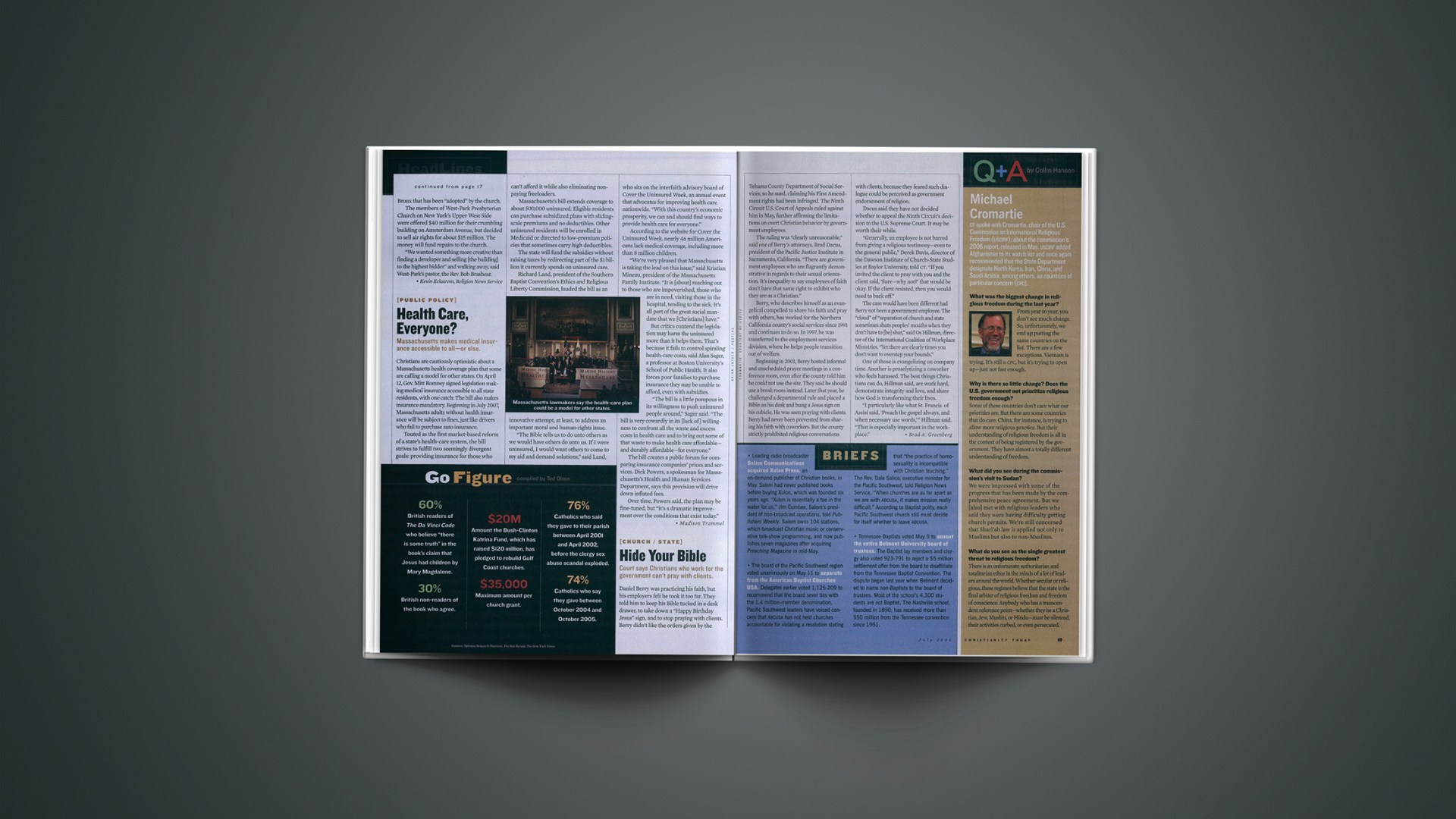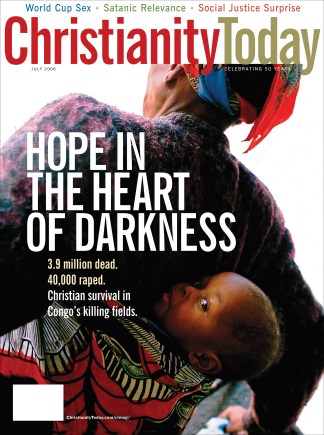CT spoke with Cromartie, chair of the U.S. Commission on International Religious Freedom (USCIRF), about the commission’s 2006 report, released in May. USCIRF added Afghanistan to its watch list and once again recommended that the State Department designate North Korea, Iran, China, and Saudi Arabia, among others, as countries of particular concern (cpc).
What was the biggest change in religious freedom during the last year?From year to year, you don’t see much change. So, unfortunately, we end up putting the same countries on the list. There are a few exceptions. Vietnam is trying. It’s still a cpc, but it’s trying to open up—just not fast enough.
Why is there so little change? Does the U.S. government not prioritize religious freedom enough?Some of these countries don’t care what our priorities are. But there are some countries that do care. China, for instance, is trying to allow more religious practice. But their understanding of religious freedom is all in the context of being registered by the government. They have almost a totally different understanding of freedom.
What did you see during the commission’s visit to Sudan?We were impressed with some of the progress that has been made by the comprehensive peace agreement. But we [also] met with religious leaders who said they were having difficulty getting church permits. We’re still concerned that Shari’ah law is applied not only to Muslims but also to non-Muslims.
What do you see as the single greatest threat to religious freedom?There is an unfortunate authoritarian and totalitarian ethos in the minds of a lot of leaders around the world. Whether secular or religious, these regimes believe that the state is the final arbiter of religious freedom and freedom of conscience. Anybody who has a transcendent reference point—whether they be a Christian, Jew, Muslim, or Hindu—must be silenced, their activities curbed, or even persecuted.
Copyright © 2006 Christianity Today. Click for reprint information.
Related Elsewhere:
More articles are available on our persecution page.The United States Commission on International Religious Freedom has its 2006 report (.PDF) online.










